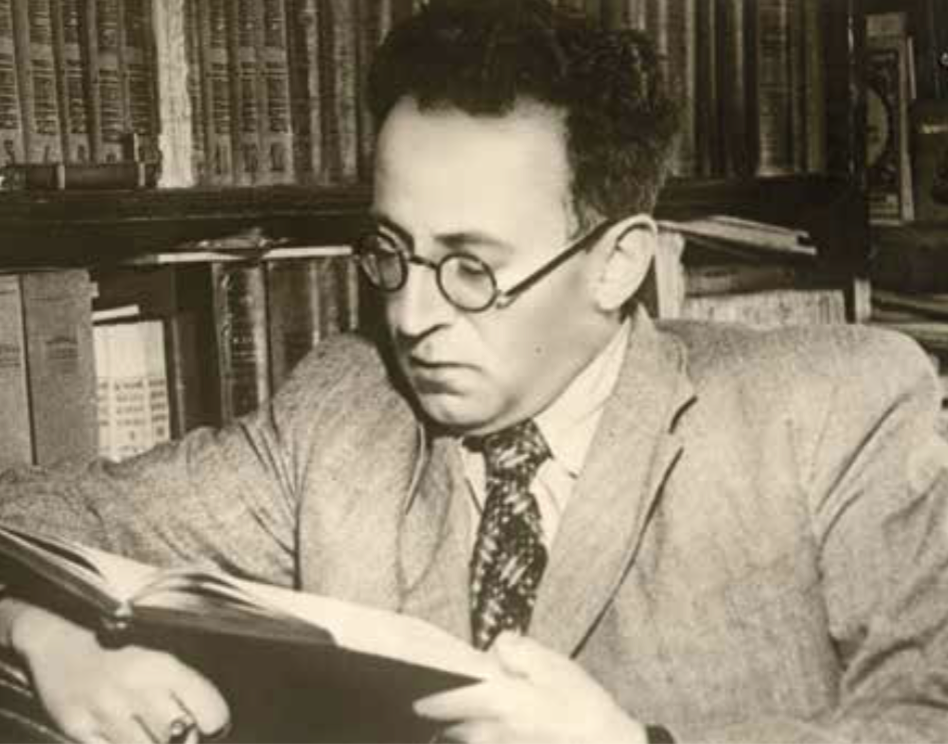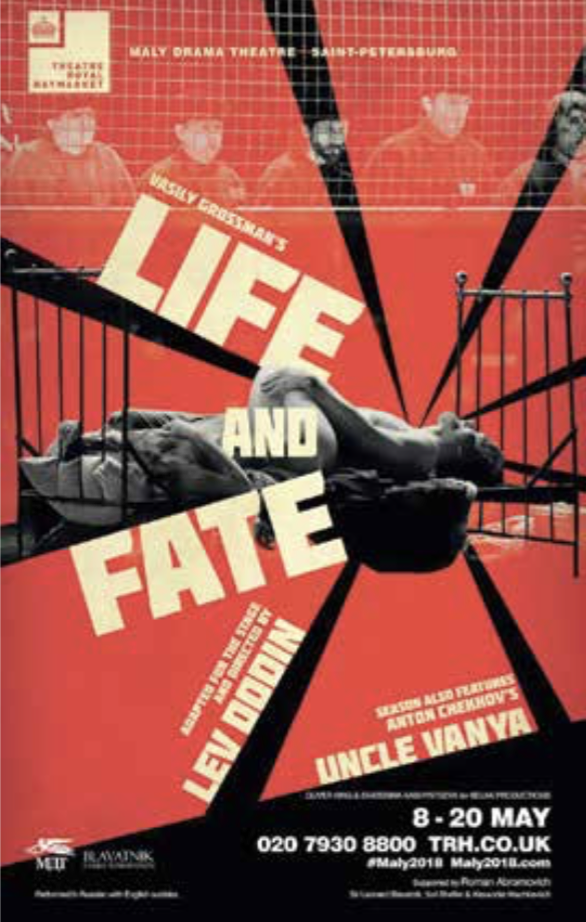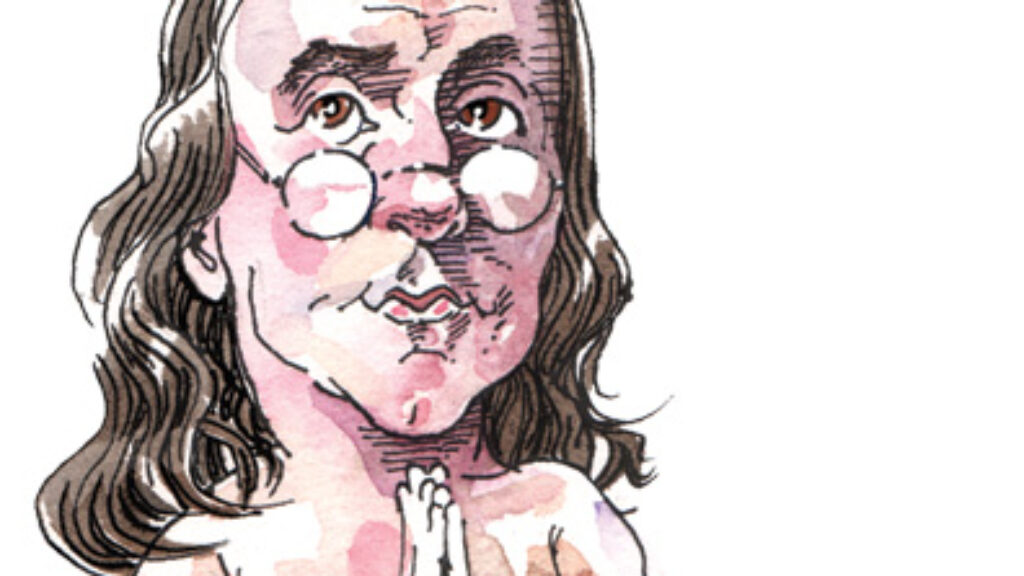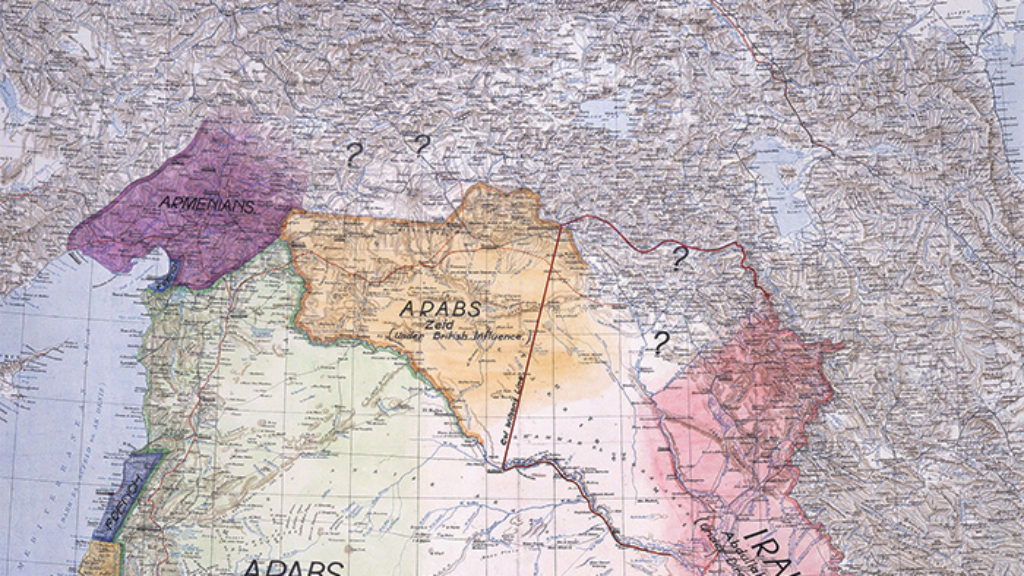Spiritual Survival
Reckless optimism has not traditionally been a characteristic of the Jewish author, and even less so of the Soviet Jewish author. And yet, in 1960, the novelist Vasily Grossman wrote to then-premier Nikita Khrushchev with an unusual intention. He wished, he wrote, to “candidly share my thoughts” with the most powerful man in a country that often murdered bearers of candor.
The argumentative thrust of his long, impassioned, and eloquent letter, which appears in Alexandra Popoff’s recent biography, Vasily Grossman and the Soviet Century, is essentially this: that Grossman’s Life and Fate is a truthful novel and Khrushchev is a truthful leader; therefore, Khrushchev should end its censorship.
It makes sense that, for Grossman,
truthfulness was the paramount point in the book’s favor; he was well known for
his “stubborn” adherence to that unfashionable principle. But did Grossman
really believe that Khrushchev was as much an advocate of the unvarnished,
difficult truth as he himself was? Although there was a relaxation of
censorship under Khrushchev, with admissions about the “excesses” of Stalinism,
the premier had also warned authors that, “We do not support democracy without
borders. . . .
We will find strength to
restrict it . . . and will arrest people if necessary”: a chilling reminder of
the state’s intention to continue its control over literature.
And of all truths for Khrushchev to defend, did Grossman really think he would take up the cause of Life and Fate, in which Grossman harrowingly depicted these so-called excesses, compared Hitler and Stalin, and—perhaps most dangerously of all, given the time and place—argued for the irreducible value of the individual human life?
In this letter, Popoff notes, Grossman bared his “deepest held beliefs.” Even more surprisingly, he wrote as if he and Khrushchev shared the same beliefs, drawing a direct line between the uncompromising truths within Life and Fate and the (very partial) truths within Khrushchev’s political speeches:
The strength and courage of your speech [at the XXII Party Congress] give reasons to think that norms of our democracy will grow just as production norms of steel, coal, and electricity grew after the days of economic collapse accompanying the Civil War. . . . I believe a new society is unthinkable without continuous growth of freedom and of democracy.
Grossman seems almost to be attempting to conscript the premier as a comrade in the battle for transparency, democracy, and freedom. For a trained chemist and committed observer of the facts on the ground, this seems rather counterfactual.

Nor was this Thaw-era letter the first or only time Grossman displayed what Popoff calls a “desperate defiance” of the nature of the state and its leaders. Her compelling, perceptive biography focuses on Grossman’s working years, which coincided with the bloodiest of the Soviet decades. In the times of greatest terror, Grossman repeatedly risked his neck for his work, his family, and such unlikely, humanistic ideals as “love, mercy, forgiveness, and compassion.” Even more surprising, he built his appeals on a foundation of humanism (a philosophy often paired with the adjective “rotten” in the Soviet lexicon).
In 1932, Grossman wrote to Maxim Gorky—already a propagandist and obedient servant of Stalin, and about to become the key proponent of “Socialist Realist” norms—to argue against the censorship of his first novel with the assertion: “In our day truth and revolution cannot be separated.” (Gorky wrote back that Grossman’s was a “very bad and tormenting truth.”)
Several years later, at the height of Stalin’s Terror, following the arrest of his wife Olga as the former “wife of a traitor to the homeland,” Grossman immediately brought her sons from her marriage to that “traitor” to live in his apartment, saving them from separation and the notorious NKVD orphanages for “socially dangerous” children. This in itself was a politically perilous act, as Grossman knew: The boys’ extended relatives refused to take them in. (In a late story, “Mama,” a nanny wants but does not dare try to save her charge from a such an orphanage.)
Grossman did not stop there. Next, he wrote many letters arguing Olga’s innocence, including one to Nikolai Yezhov, at the time the Terror’s chief architect. As Grossman understood, one could be killed merely for failing to denounce, let alone actively defending, one’s spouse. Such defiance, Popoff notes, amounted to “putting his own head in a noose.”
Similarly risky was the letter’s main argument: again, an attempt to conflate Soviet and humanistic values. The letter invoked the “humanity” of Soviet law and quoted Stalin’s comment, “The son is not responsible for the father,” ignoring Stalin’s implementation of collective punishment.
How much of what he wrote in these letters did Grossman believe? It is quite likely that, as Popoff asserts, Grossman’s 1938 letter to Yezhov did not “reflect actual belief in the ‘humanity’ of Soviet law”—but Grossman did seem to have had a desperate, willed belief in some humanity within those who created and executed these laws.
Unlike Life and Fate’s Commissar Berman, who merely utilizes ideals to manipulate soldiers’ behavior, Grossman seemed to genuinely hope to influence people by invoking humanist ideals. For example, he repeatedly asked whether Khrushchev had himself read Life and Fate—as if an experience of the book’s essential truthfulness would lead to a desire on the part of the premier and first secretary of the Communist Party to disseminate those truths. Against his scientific training, he seemed to be attempting a kind of alchemy, a reignition of the human spirit in his readers.
Grossman’s other acts of authorial courage included long stints as a war correspondent in Stalingrad and other fronts he sought out specifically for their dangerousness; a 1946 editorial in which he defined the Soviet Union’s war victory as a triumph of truth and compassion (Popoff notes, “Every word in this article argued against the regime”); and an appeal to Stalin himself to publish the first part of what would become Life and Fate—at the height of the postwar anti-Semitic campaign.
But perhaps his most spectacular act of defiance came immediately after his letter to Stalin. Unlikely as it may seem, Stalin seems to have been willing to allow publication, if only Grossman would remove a troublesomely Semitic character, the Jewish scientist Viktor Shtrum. Grossman refused, as he would subsequently refuse many, many similar calls to remove Jewish characters and references from his work, leading one beleaguered editor to compare him to a “mad bull.”
What neither the editors nor the apparatchiks realized was that Shtrum’s namesake had once lived among them. In fact, the character was named after and based upon a friend of Grossman’s, a brilliant physicist murdered in the Terror and subsequently “scrubbed” from history. So thoroughly did the Soviet regime erase all traces of the historical Lev Shtrum that only recently did a literary researcher discover the real-life model for this character. Grossman refused to sacrifice the character of Shtrum, or any other character, for any promised “greater good”—any more than he would sacrifice an actual human life.
This stubbornness, as it was called at the time, almost led to his own destruction (his arrest was forestalled only by Stalin’s death) and ruined his chances of a successful postwar career. In his later years, he was largely unpublished, isolated, and assiduously surveilled by the KGB. He died of lung cancer in 1964, without ever being informed by his physicians that death was imminent—denied this truth, as was customary in that time and place.
In a regime that demanded black-and-white thinking (even as the objects of that thinking shifted with the political winds), Grossman argued for the irreducible complexity of the individual human. In a totalitarian state, he fought for “humanist ideals of love, mercy, forgiveness, and compassion.” What gave this self-described “stepson of the age,” a sufferer of phobias as well as entirely reasonable fears, such outsized courage? What gave this truthful, careful observer of the worst of what humans had done such sturdy faith in the human soul?

Grossman wrote often about the endurance of the human soul, but he understood its fragility, too. Living through “the cruelest time,” his characters mark the spirit’s erosion and erasure, in others and within themselves. In Life and Fate, Lyudmila Shaposhnikova notices a woman refuse help to a blind man and wonders whether the recent history of famines shaped this kind of callousness. Yet, Lyudmila herself refuses to help beggars.
As Grossman knew, one’s humanity does not naturally withstand terror. It must be held onto deliberately, against one’s instincts for survival, even against reason. The cruel genius of the show trials was to offer a compromise—life in exchange for surrender—and then, once surrender had been achieved, to withdraw the promise of life. Life and Fate’s Viktor Shtrum, frightened into signing an accusatory letter he knows to be false, tells himself to remember this experience always, to use the shameful memory as a prod for future integrity. (Grossman experienced a similar event, and Popoff suggests he may have made a similar vow.)
In the same novel, a beloved former teacher of the Gulag prisoner and Soviet true believer Abarchuk explains that continued faith in the party is a “weakness,” a ruse to maintain his spirit. Abarchuk argues with this teacher, then runs off, losing the chance to say goodbye to his dying friend. Enduring faith sometimes requires great sacrifices.
Optimism—faith in oneself and others—may often be an obvious lie, “opium,” as another character, Sofya Levinton, calls the rescue fantasies of her fellow cattle-car passengers en route to a death camp. But it is the only possible antidote to the lies accompanying the mad, all-consuming exercise of power. The people in the cattle car assure each other that the Soviet government has sent an ultimatum to Hitler demanding their immediate release: “this wagon had its own strategy, Sofya reflects, a strategy founded on a passionate hunger to remain alive.” If opium is required for spiritual survival, we would do best to take it.
Grossman’s letters and appeals, arguing for the lives of those closest to him and for the validity of the truths in his novels and stories, were perhaps his means of maintaining his own humanity, his own moral courage. His eccentric discipline was this: In trying to convince others of humanist values, including dictators and torturers, he revived those values in himself.
Sometimes, his willed optimism was even borne out. Grossman’s wife Olga was released by Yezhov, her children allowed to remain at home. Stalin did eventually allow the publication of the first part of Life and Fate. The entire book was published not “only in 250 years,” as several comrade-editors had once suggested, but in “merely” three decades—posthumously.
Comments
You must log in to comment Log In
Suggested Reading
Moses Mendelssohn Street
Immortality in Jerusalem.

Accounting for the Soul
Mussar Yoga makes for a surprising deli combo platter of the spirit, even in our easy-going mix-and-match America.

Chaim of Arabia: The First Arab-Zionist Alliance
Chaim Weizmann regarded his 1919 agreement with Emir Faisal as an epoch-making treaty. That didn’t turn out to be the case, but a century later an Arab-Zionist alliance may be reemerging.
Old Isaiah
When Woodrow Wilson became the first president to nominate a Jew for a seat on the Supreme Court, much of the opposition to his appointment revolved around his Jewishness.
David
An amazing man. His works should be read by all.